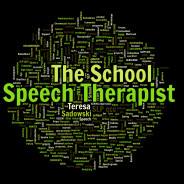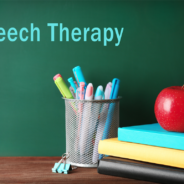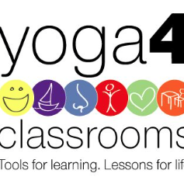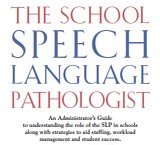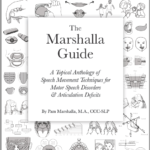Administrators: Know Your SLP’s

The biggest mistake administrators make is not getting to know their professionals. Often based on the decisions you make, things you say in meetings or even off handed comments you make it is clear to Speech Language Pathologists that you have no idea what we do, how knowledgeable we are, the resources we need to do their job better or even areas we address. When making big decisions especially those that involve procedure get your staff involved. You might be surprised at what your staff can offer. Teachers and other professional staff such as SLP’s can often be a feather in your cap if you listen to them rather than immediately disagree with them.
Learn the roll of every staff member and professional in your building or school. You never know when someone might have special training or experience to get you through a rough situation. Listen to what your staff has to say even if it’s an opinion. Successful administrators and school boards cannot have a myopic point of view. I’ve seen this happen and it does not create a strong, successful school system.
SLP’s are extremely knowledgeable. Our expertise goes beyond articulation therapy. We have training that goes way beyond academics. We know how the brain and body function together. We can pick out specific difficulties in children that can make life long differences if not remediated. We know about auditory development (not just hearing) and what happens to students who have difficulty with auditory processing, discrimination etc. We know immediately when your school system has a poor phonics program. We work on language development with severely autistic children, children with non-verbal learning disabilities and everything in-between. We work with children who have specific learning disabilities with average cognitive skills and those children who are severely learning impaired with low cognitive skills. Unless you’ve studied higher level language development you don’t have a clue it’s missing until it is almost too late. This list only hits the tip of the iceberg. I could go one and on ….. but I think you get the point.
Get to know you SLP’s and other professionals. Ask the questions and listen to them. It will only make you a better administrator.
Teresa
I’m back and want your input on SLPs in schools
Well it has been awhile since I seriously worked on my blog. In December I left my school position to start a private practice. In July I made it official forming my own LLC called TBS Speech Therapy. I did a little contracting work earlier this year and have firmed up my first consulting gig for the fall. My school year ended without the usual drama and the amount of time I spent on paperwork was significantly less and compensated. Right now work life is good.
If you follow my blog you know I’ve done a little bit of work on advocacy for SLPs in schools. Writing my book, The School Speech Therapist: An administrators guide to understanding the role of the SLP in schools along with strategies to aid staffing, workload management and student success, presenting at ASHA 2016 and writing articles on my blog, has drawn only a little bit of attention but a lot of support from SLPs finding themselves in similar situations. Frankly, I had to give it a rest for a while when I realized that despite my best efforts I was not able to advocate for myself and get results. I was feeling very much like I was hitting my head against a brick wall while burning out at the same time.
I reached out to ASHA years ago on the topic of advocacy in schools and didn’t get much of a response. At the time all I saw were articles on caseload management. Honestly, I was a pro at caseload management. I mentioned my concerns to SIG 16 at ASHA 2017 and even that went nowhere. However, ASHA 2016 was the turning point for me. The motivational speaker who presented at the opening get together inspired me to make a change.
Now after a nice long hiatus and a fun/relaxing summer, I’m feeling productive again. I want to write and article on why SLPs leave school based positions (and also maybe why they don’t leave). I would love any and all input. I’m pretty sure I know what I’m going to hear but I want to see if there is a pattern.
You can tell me your thoughts here, PM or respond on my facebook page, The School Speech Therapist or send an email to theschoolspeechtherapist@gmail.com All is confidential. Thanks Teresa
SLPs, Contribute to your school newsletter
In my state, teachers and all professional staff have to generate personal SMART goals. With all the work SLPs do, the last thing I wanted to do was have to keep complicated data on something I was doing. At that point I decided to do something very easy for me that would benefit all students not just those with language issues. My SMART goal was to write monthly articles focusing on language development.
Initially, I found it wasn’t that easy to find universal themes that could be beneficial to all. However, knowing all we know about language and learning once I had a topic writing for parents was easy. I created articles about once or twice a month for that school year. The idea was well received by my principal. Basically it was free content for the school newsletter. Best of all if I published one article a month (sometimes weekly) I achieved my goal without extensive data collection.
I’ve slowly made these articles available to other SLPs on Teachers Pay Teachers. Here is my current list of articles available on TPT. These articles are written in a word document so they can be edited to fit the needs of you specific setting.
The School Newsletter: Practice Those Memory Skills-free
The School Newsletter: 10 tips to building a strong vocabulary (5 article series)
The School Newsletter: Don’t Drop Picture Books Too Soon
The School Newsletter: Don’t Forget The Details
The School Newsletter: Strengthen Language Skills Through Conversation
My section of the school newsletter was titled “Notes from the School Speech Therapist.” If I were to introduce this at another school I would probably change that title.
The articles are available in my TPT store. This was such an easy way to achieve my Smart goal. I received some very nice complements from my staff and administrators. It also made my presence in the building more obvious, helped to encourage language and learning beyond the school day and hopefully made parents more aware of what they could do to support their child’s development. I believe the articles were also a universal support that helped with general language development. Better Speech and hearing should be highlighted all year around not just in May.
Let me know what you think. I do have other articles to post so please check back often. If you have ideas for articles I would love to hear them.
Teresa
Speech and Language Service Delivery, Be Proactive Parents
This article was originally published by Teresa Sadowski M.A., CCC-SLP on the now defunct Examiner web site in February 2012. Speech and Language Service Delivery, Be Proactive Parents was written to help parents advocate for appropriate and effective speech and language services for their child.
Once your child has been diagnosed with a language disorder or weakness, it’s important to be proactive about service delivery. Asking, “How often will my child be seen by the Speech Language Pathologist?” isn’t enough.
The service delivery process begins with the Speech Language Pathologist (SLP) making their recommendation at the team meeting based on testing, progress and your child’s specific needs. Unfortunately, recommendations may also be driven by the school’s schedule, the therapist’s caseload or the school’s philosophy. A typical recommendation might be 1-2 thirty minutes sessions a week using either the “pull out” or “push in” model.
In the “pull out” model, your child receives services in a separate small group**** or individual setting. They’ll receive specific instruction and practice in their area(s) of need. School schedules might not be conducive to this model. Sometimes it’s difficult to find half hour blocks where the student isn’t missing something important. Ask the team to explain the schedule to you. Ask when services will take place and what your child will be missing. Some schools have scheduled in a daily block of time that accommodates children who receive special services. During that block of time the other students are free reading, taking an extra elective or working on special projects. This not only helps with scheduling, it keeps the special need student from feeling singled out or from falling behind. If your school has not developed this block of time ask the administration to consider it.
Many schools are opting for the “push in” model which means the therapist goes into the classroom. If the “push in” model is recommended there’s a lot more to ask.
How many other students is the therapist servicing at the same time in the classroom? Any more than 3 or 4 students and you might begin to wonder if the therapist will have any significant contact with your child. How will the therapist address my child’s specific needs? If you are not satisfied with the response to this question, continue questioning using the proposed goals and objectives as a guide. How much consultation do the therapist and teacher have before and after the lesson? If consult time between SLP and teacher isn’t built in, “push in” will not be very effective. One of the main purposes of the “push in” model is to educate teachers on the language disability and how to implement classroom lesson plans that accommodate a student’s specific needs. Therapists may often recommend a combination of push in and pull out as an appropriate solution.
How big is the therapist’s caseload?. In some school systems SLPs are servicing 80+ students. Even a therapist with 30-40+ students is going to have little time to devote to your child. Trained Speech Therapy Assistants are frequently used in schools with large numbers. Just like therapists, some therapy assistants are good and some have limited skills. If a therapy assistant is involved in your child’s programming you need to ask three questions. How much experience does the therapy assistant have? Everyone has to start somewhere but if you have a child with specific and challenging language needs that require flexibility in programing, insist the SLP primarily works with your child. What kind of training does the therapy assistant have? Therapy assistants should either hold a certificate from an accredited program or have undergraduate degree in speech language pathology. How often does the assistant meet and consult with the SLP? In reality they should meet daily to discuss mutual caseloads, that doesn’t always happen. In some states the SLP must be in the building available to observe and supervise the assistant at all times. If you are uncomfortable with the response you receive to this question, ask to see the state regulations.
Most schools really do look out for the best interest of their students. And most therapists will answer programming questions with relative ease during the team meeting. However, it is easy for schools and therapists to become overwhelmed or find themselves struggling with limited resources. Develop a good working relationship with your child’s special educational team, check in with their service providers every so often and ask what you can do to help. In the end, your proactive actions will only benefit one person……..your child.
Workshop: Yoga and Mindfulness in the Classroom
Back in mid-December I attended a one day workshop called “Yoga and Mindfulness in the Classroom: Tools to improve self-regulation, learning and classroom climate” Lisa Flynn, E-RYT, RCYT presented a program that she designed to help bring yoga and mindfulness into the classroom. Not only did she present the concrete parts of the program, Ms. Flynn also did a good job explaining how students could benefit both academically and behaviorally.
My motivation for attending was to learn a little bit about mindfulness and incorporate some quick and simple techniques into my therapy sessions. I was actually planning for that to be my smart goal for the year. The initial sequence presented focused on activities that could easily fall under the SLPs scope of practice. One listening activity focused on auditory attention, some breathing and head/neck movements could fall under oral motor, movements that pair up with others could fall under social and another activity focusing on relaxation/imagination is basically visual imagery. I’m sure I could find many more examples.
Ms. Flynn has modified many of the basic yoga positions to be “school friendly.” This means nothing too challenging, minimal space requirements and no touching the floor. Even more impressive is that she has put together a variety of sequences to choose from depending on needs. Ms. Flynn was also very mindful of the time constraints schools face, creating sequences that vary from 1-2 minutes to 20 minutes. Her suggested sequences include
- Morning meeting
- Take a Break
- Transitions
- Pre-Writing and Writing Break
- Pre-Test and Test Break
- Calm/Focus
- Mood/Energy Shift
- Close of Day
Several of these 1-2 minute sequences would be perfect for speech/language therapy sessions.
Yoga and Mindfulness in the Classroom was hosted by PESI. It really was a good bang for the buck. Not only was Ms. Flynn very knowledgeable but she also shared an awful lot of information and the take homes were very complete. If you wanted to implement her techniques on a larger scale there were materials available to purchase. Ms. Flynn has created sets of cards to guide, explain and demonstrate the aspects of her program and I must say they were quite good.
If it would up to me, I spend some consult dollars on this program to have Ms. Flynn train the teachers and develop a program that would fit my schools needs. I see this approach as proactive and being able to help in so many ways. I could also envision physical education teachers taking the lead on this to help incorporate this into daily practice. This is a program all kids could benefit from. This could be considered a universal support in schools and foster skill development in so many areas.
This was honestly one of the most enjoyable workshops I’ve been to in a long time. I do have to wonder if it was enjoyable because we got to get up and move around. If movement and breathing made the workshop more enjoyable that just proves it works. I’m looking forward to incorporating many of these techniques into my therapy sessions.
Read more about Lisa Flynn’s Yoga 4 Classrooms program on her web site
Ed Camps are a great resource for professional development
A couple of days ago I attended my second Ed Camp in Lynnfield, MA. Once again I had a really nice time, had some great conversations and went home with a prize. I proposed 3 topics Auditory Processing (what difficulties might look like in the classroom and strategies that can be implemented), universal supports and importance of higher order language development.
The auditory processing session went well. Many of the teachers asked some stellar questions. I like to talk about auditory processing because it is one of the most asked about topics in schools. I hope I was able explain how auditory processing difficulties present in the classroom, what it might look like at different ages, that it might look like other things/importance of differential diagnosis, when Central Auditory Processing Disorders can be diagnosis and how they are diagnosed. This time I was prepared with links on general information and strategies that could benefit those suspected with auditory processing issues in the classroom. The room we were in had a noisy heater so it was the perfect example of background noise and how that might effect processing if the noise can’t be tuned out.
The universal supports session took a technology turn. Most of the teachers in the room were at the middle school level. While I was looking to talk about simple things like behavioral supports, procedures/expectations for lowering volume in common areas, gaining attention, developing some standards/expectations for listening, teaching vocabulary in a similar manner, consistently providing background……universal supports that target language skills, the group assumed the session focused on Universal Design. Which I came to learn is exactly what I meant by universal supports just taking a step further into technology. One woman was particularly knowledgeable and provided a lot of information on resources. The main thing she recommended was UDL toolkit which provides tons of free resources.
The people working with the older students were already using some of technology recommended and they went away with some good resources. What I took away from it was, technology can also be a universal support. Schools need to find out what works best for their students and stick with it. Using similar programs across curriculum instead of every subject/teacher using something different provides consistency.
What universal supports come down to, is that administration recognizing a problem (or just an area that could be improved), creating a universal support to help all students, including staff in development of universal support so they get buy in and consistent follow through and training to maintain the universal support
The Higher Order language session also went well. Listening to teachers talk, my suspicions were being confirmed. Kids are not as savvy as they use to be when it comes to understanding and using higher order language. Perhaps cultural shifts, over use of technology, lack of expectations and even the changes in education system can be blamed for this shift in language development. We discussed the gaps we are seeing in language development, learning of skills and problem solving. Speaking with someone who worked at private prep high school, that just opened a middle school, we thought it will be interesting to see what 9th graders higher older language looks like in three years. At that point, the private prep kids will mix with the new incoming 9th graders who were exposed to common core. Will there be a difference in their learning styles, overall use of language higher order language abilities, quality of work and problem solving? I might have to remember to follow up on that.
Everybody I meet at Ed Camp is so knowledgeable and some are very good speakers. I have to wonder why school districts spend so much on “educational consultants” when so much brain power and experience is at their fingertips. Ed Camps are a great way to spend the day. Perhaps we should consider doing an SLP Ed Camp.
*****I’m always looking for topics to talk about at Ed Camp that are speech and language related but relevant to teachers. If you have any ideas please pass them on.
What are the biggest challenges SLPs face in schools
About a week ago I asked school SLPs this question on Facebook, “What is the biggest challenge you face working in schools?” I received over 60 responses. With 30 years under my belt, I was pretty sure what the responses would be but I wanted to hear from others.
Paperwork was the biggest challenge hands down. I know my paperwork requirements have increased significantly in 30 years. The advent of the computer just increased the amount of paperwork, but helped us to do it faster. That’s just a change in society that we can’t do anything about. Imagine how long it would take us to do all our paperwork tasks by hand these days. However, the time given to me to do paperwork within the school day has shrunk as my caseload numbers have grown. Reality is we have different paperwork needs than teachers. Many of the documents that we produce have legal ramifications and must be done correctly. We have a much better chance of our documents, notes and assessments ending up in court at some point. So you would think that schools would give us significant blocks of time to organize thoughts and string coherent sentences together. What we need to do is to make those differences known and advocate for more paperwork time. It’s a little hard when your contract is basically a teacher contract not a SLP contract. Even if you are able to get your principal or other school administrators on board understanding the need, based on a contract you are only eligible for as much paperwork/prep time that teachers get.
What can be done:
Point out that you are sacrificing other support services such as classroom consult and homework in lieu of getting paperwork done.
Limit the time you spend working on paperwork at home.
Showing up not totally prepared will be an awful feeling but sometime necessary to make the point.
Say, “No I can’t do that,” when given a new paperwork task.
Keep track of paperwork and present data
Caseload
Caseload came in a close second. Caseloads are too big and too diverse. Schedules are too tight, groups are too big, groups are not matched well. We need to stop talking even to each other about caseload numbers. Caseload is just a number. What we need to do is to start emphasizing WORKLOAD. Workload will include paperwork and any other tasks that you do on a regular or as needed basis. I could treat 30 articulation students in my sleep. However, given a diverse caseload with a few severe needs thrown and you have a totally different ballgame. Longer reports, more meetings, more consultation time….more everything.
What can be done:
Again say ”No,” tell administration there is no way this workload can be completed within the specific time frame.(especially if you work part time)
Point out there isn’t enough time
Ask for more help
Point out that specialized instruction requires time and practice. Give them the realities of therapy. If you have a group of 3, working on 3 different areas, that’s only 10 minutes per student once or twice a week. That 10 minutes is only good if you haven’t been cut short by your pick up/drop off. Not enough to make effective progress.
Scheduling
Scheduling came in third. So much of the scheduling process is dependent on a decent and consistent school schedule. For 10 of my 30 years I worked at a middle school with a perfect schedule which scheduled in flexible blocks where students could receive extra support services. No other school I’ve worked in had those flexible blocks. There was only one other year where scheduling wasn’t a problem. Our program manager was very organized and had us schedule as a team one of the last days in June. She was also organized enough to have the majority of our meeting completed in early June. (yes it was an amazing year). We actually started servicing the student the second day of school in September. Although I have tried to replicate that scheduling process at other schools, I just can’t seem to get the team mentality working. State audits will ding you if there is too much time between the beginning of school and services starting on a regular basis.
What you can do:
Get the school schedule and any other information you need the minute you get in the building
If scheduling is too daunting, ask your principal to do it for you. Especially if your school has some sort of crazy waterfall schedule, an unusual day cycle or block scheduling. Make sure you use the word
Try to coordinate and schedule as a team. It streamlines the process and gets the schedule up and moving faster
Write in pencil, it’s always going to change
Expect this to be a difficult process.
Suggest a school schedule with flexible blocks
Point out anything that takes up significant time even pick up/drop off of kids.
Other areas mentioned:
Time: Not enough time to service, not enough time to consult, not enough time to educate staff not enough time to complete paperwork tasks.
IEP Season: Not sure what exactly that means but I have an idea it means all the IEPs are updated at the same time. If your IEPs are not scattered through out the year, I’ll be praying for you. I wonder if direct services cancelled during IEP Season?
No coordination to help carry over skills: This stems from lack of time, lack of understanding of our roles and lack of understanding of language disabilities.
Space: Face it we are always doomed to get the smallest, dingiest spaces, with the worse acoustics. However, what’s worse is an SLP sharing an office with 4 other people with make shift walls. Space alone speaks volumes on how we are perceived. Whenever I’m linked to a new school being built either in the town I work in or the town I live in I alway advocate for decent small spaces with good acoustics.
Medicaid: Medicaid billing is easy for some hard for others. Different states require different documentation. Some schools will have more students on medicaid than others. What I have heard of is putting time into the negotiated teachers contract to provide specific time to do this.
Lack of Parent support: It’s a fact few students actually practice their speech/language skills at home even when extensive home programs are set up. I’ve encouraged use of paper materials and apps with little to no feedback. Students actually tell me they didn’t practice. Frankly I have little time to encourage and follow up with this.
School administration not understanding who SLPs are, our diverse training and background, how we help, who we work with and our role as SLPs in schools: Too many time we are lumped in with teachers and our role is very different. My feeling is we should be working to show how we should be align with the school psychologist in terms of our overlapping interest in language/memory/neurology, our legal responsibilities, paperwork similarities and common goals we might address. That we are viewed in the same lens as teachers, I believe is the crux of the problem.
One SLP commented that even with educating several of her administrators over the years, there was never any significant changes. I believe this to be true and that is why most SLPs are just willing to go along with the status quo. It’s easy to say I have too much paperwork and to big of a caseload but problem/reasons goes much deeper than that? Why are workloads too big? Have you done anything successfully to address these issues in your school? Have you worked with other SLPs in your system or state to improve your situation? If so, share!
Footnote: I cover many of the issues mentioned in my book “The School Speech Language Pathologist An Administrator’s Guide to understanding the role of the SLP in schools along with strategies to aid staffing, workload management and student success.” I provide a breakdown of time factors, suggestions for administrators and even a little education for administrators. Hoping at some point I find out that my book made a difference somewhere.
Teresa
TPT: Love it or hate it?
I came across this blog post written a few years back “I teach Kindergarten and I don’t like Teachers Pay Teachers” by Matt Gomez kindergarten teacher. The comments posted by others have taken off. I wanted to simply comment but I knew my comment would be very verbose so I figured I could turn it into a blog post (and have another reason to mention my material on TPT). Keep in mind that my view of TPT as a Speech Language Pathologist is going to be a little different. Also Mr. Gomez isn’t the only one who doesn’t like to use TPT….lots of similar blog posts out there. [Just noted a follow up blog post by Mr. Gomez, “Teachers Pay Teachers-the Sequal” again tons of comments. I wish I had his following!]
Reading the article I can clearly understand Mr. Gomez’ point of view.
#1 Of course teachers are trying to sell things that work in their classroom. Teachers and therapists have been doing this for years. It was just a lot harder to do and they did it through the larger publishing companies. You have to look at TPT as a self publishing company. Over the course of 30 years I have purchased (at great expense) lots of books and materials from educational publishing companies that never went through trials, had data collected, was tested out or demonstrated. At least with TPT if I buy something that doesn’t work, I’ve only lost a few dollars (well maybe a more than a few with ink/paper costs). I agree that the PDF format makes it difficult to customize to totally meet the needs of a class but I’ve experienced that with lots of materials over the years. This is where your creativity should come in. Still working with materials in a PDF format is still easier to modify (the activity not the materials) than, the computer program that basically gives the kids the answers if they can figure out where to click or any of a number of applications that tout to be educational. I guess my point is there are limitations with all materials. I look for materials and Apps that fit the specific needs of my students and never buy anything just because it is cute or fun. I thoroughly look through the materials to see if it even comes close to fitting my needs. I also continue to use some materials that are over 20 years old. Why….because they are the best at targeting the specific skill I’m working on. As an SLP I can get away with old and tattered.
#2 TPT my be fostering the “laminating culture” but they didn’t create it. We’ve been laminating for years. Common Core is making teachers turn to sites like TPT for help. Schools with good curriculums have had to throw out those curriculums and materials. Most don’t have the funds or even the understanding to supply common core and teachers are trying to do the best they can. Many are worried about losing their jobs if common core isn’t followed or if their students don’t score well on a test. If the people who commented on Mr. Gomez’ site put their efforts into advocating for education instead of being miffed over comments about TPT imagine what could happen.
#3 I did cute when I was younger. My personality has changed, my workload has grown and for me there just isn’t time for cute. Even some of the school wide cutesy stuff bothers me (why do we need pajama day?). I haven’t given away a sticker in years. Kids do like to have fun and I try to foster that through hands on activities, laughing, joking and conversation, all while staying focused on my goals/student needs. I totally agree with Matt that real images and hands on materials are much more valuable than cutesy images that are basically charactitures of themselves. Learning while experiencing “real” things/situations/theories/ideas always works out better.
#4 I would be hesitant to use any item from TPT for anything more than a supplementary activity to practice skills being taught. To use a created “program” listed on TPT, the data isn’t gong to be there to support
#5 Other than tutoring (usually for a lot less than teacher pay), most teachers have few other ways to supplement their income. SLPs often give discounts for private services when insurance cannot be accessed. Even then insurance and especially medicaid/medicare, often doesn’t even come close to an expected hourly rate for speech therapy. Why shouldn’t individuals try and market their ideas. TPT just makes it easy. Speech Language Pathologists create or customize just about every bit of material they use to fit the needs of specific students. If I’ve created something that works well for me, maybe it will work for others. You never know where that one great idea is going to come from.
#6 Sharing ideas and material is wonderful. There is just no reason to reinvent the wheel every time a new subject, theory, curriculum or flavor of the day pops up. TPT is a time saver and I imagine sometimes a life saver. If you’re not a graphics wiz it’s the place to go.
Basically I like TPT and I like what it does to create business opportunities for educators. I have a few items on TPT, primarily articles suitable for a school newsletter and one killer packet of workshop materials for paraprofessionals on Speech and Language development. I doubt I’ve made 100 bucks in the three years I’ve been with TPT. I’ve purchased about 35 items on TPT and use about 10 consistently. That’s probably a higher percentage than with my purchase and used of very expensive traditional materials.
My advice…..if you’re going to use TPT
Don’t impulse buy
Use TPT products to supplement an activity or reinforce a skill not as a total lesson.
Look through the material, make sure it is something that comes very close to fitting your students specific needs.
Will your students like it?
Can you use it in different ways and with different levels?
Consider the overall cost. Educators are not business people and often don’t factor in paper, ink, wear/tear on your printer and your time
Make sure it is a time saver for you
Always check out the free downloads but don’t print unless you really like it (again time and money)
Don’t pay too much
Check out my TPT store , especially if you’re an SLP looking for articles to put in your school newsletter (a fantastic professional goal by the way) (ok I had to throw that in)
Teresa
SMART Goal Bank for SLPs-Share your SMART goals
With the new school year on the horizon, I’m going to post once again about SMART goals. As SLPs we almost always have to figure things out on our own. With the development of professional SMART goals we’ve had to be more and more creative. I’ve seen SLPs make the process extremely complicated and SLPs who make the process a lot simpler. Coming up with new and interesting SMART goals that can relate to the SLP is just not that easy. As a group we need to start sharing our ideas. There is no reason for SLPs to be reinventing the wheel.
What I would like to propose is creating a smart goal bank specifically for Speech Language Pathologists. I would have two categories one for SLPs who need individual SMART goals and one for SLPs who may be writing group or district wide SMART goals.
Submissions should include:
Specific SMART goals as they were written in your plan
Levels/ages/grades of students you worked with at the time of the smart goal
Briefly state what you did to complete the goal.
What your administrator/principal/supervisor thought of your smart goal
Level of difficulty in completing SMART goal, self judge on a 1-5 scale
Time frame it took to complete smart goal
Your name if you would like recognition
Working part time I was able to slide under the radar when it came to SMART goals until this year. My goals this year focused on education or staff and parents. My SMART goals for this past year are listed below. My goals are a little light on the measure part but I chose a “will do this” as opposed to a challenging data collection or changing outcome. In my situation this was acceptable.
I want to create a bank of SMART goals that are practical, easy to achieve, related to speech/language and not very time consuming. So please take 5 minutes to share your experience. Either respond to this blog post or email me at theschoolspeechtherapist@gmail.com. Let’s help each other out.
Teresa
I wrote these while working in an elementary school setting. This was very easy to complete because I wrote it to reflect something I do as part of therapy anyway. It is a little light on measurable. But it worked for me.
Student Learning SMART Goal(s)
Students on my caseload will spontaneously share 1-3 unique experiences each session, in a logical order with adequate details and decreased adult prompts. In addition they will ask relevant questions about other group members shared experiences.
Professional Practice SMART Goal(s)
To share my knowledge of language development with parents, support staff and administrators by providing additional information on language development and practical strategies to aid student success. Support staff will participate in an inservice to understand the role of the SLP in school, what the SLP works on and specific language strategies that support the underlying language needs in the classroom. Parents and administrators will receive additional time and materials when needed or requested, to help understanding of individual student’s specific language needs and/or disability. In addition parents, will be provided strategies, suggestions and materials to help develop underlying language needs in the home as needed.
Part 1: Analysis of Student Learning, Growth, and Achievement
When talking about novel experiences, students in both regular and special education often have difficulty providing logical, sequential, detailed information and difficulty expanding on topic. Many need too many probing questions, suggestions and models when telling about experiences.
Part 2: Assessment of Practice Against Performance Standards
As a precursor to writing, students must be able to organize ideas and details, independently, in a logical and sequential manner.
Are you looking for a smart goal idea?
Last year our school district asked all the SLPs to put together an inservice for teaching assistants. We all actually used this as an activity as one of our smart goals. I put together a packet which is divided up into two parts, a presenter copy with information to use as a guide and a participant packet that provides both information and an outline (to encourage some note taking and active listening). The information I presented in the hour long inservice included who we are, what we do, our training, who we work with, what we work on, how language difficulities impact learning along with some suggestions on what they can do in the classroom setting. With dollars tight, schools are often looking toward their own resources to share knowledge.
I was pretty much on my own when it came to writing a smart goal, I hope I got the form right. Maybe a little light on measurable. However, It worked for me.
Professional Practice SMART Goal:
To share my knowledge of language development with parents, support staff and administrators by providing additional information on language development and practical strategies to aid student success. Support staff will participate in an inservice to understand the role of the SLP in school, what the SLP works on and specific language strategies that support the underlying language needs in the classroom. Parents and administrators will receive additional time and materials when needed or requested, to help understanding of individual student’s specific language needs and/or disability. In addition parents, will be provided strategies, suggestions and materials to help develop underlying language needs in the home as needed.
If you like this idea and don’t want to reinvent the wheel, Speech and Language Services In Schools In-service for Teaching Assistants is available on Teachers Pay Teachers. I should add that I also supplemented the inservice with a grade specific language development expectations list. The inservice went over well. I received a couple of nice compliments. I think I provided a little insight if nothing else.
I need ideas!
Something about the end of the school year just sucks all my energy and creative juices. After some R & R, I’m ready to get back to work. Now I just need some ideas. Anyone have some interesting and possibly controversial topics for me to tackle?
One thing I have been doing during my down time is continuing to market my book, The School Speech Language Pathologist is an Administrator’s Guide to understanding the role of the SLP in schools along with strategies to aid staffing, workload management and student success. Most of my marketing takes place via twitter or Facebook. I sell a few copies here and there. Even in the field of speech language pathology my book is a niche book. I would love to sit at a booth during any conference and share/sell my book but the overall cost for something like that can be thousands. It is rather difficult to justify the cost when you literally make only a couple of dollars per copy anyway. Specific educational web sites won’t carry your book unless you self published through them. I imagine there are a few SLPs out there that might be in the same boat. My thought was that I could offer to split a table with several SLP authors at conferences. Anyone interested? Again, not sure with travel it would be profitable. I would probably have to find 10+ SLP/education authors to make this a go.
TPT is another resource I both contribute to and use. My products consists primarily of articles appropriate for school newsletters. (You can check out my TPT store here) I also have one product that focuses on inservice training for teaching assistants. As one of our smart goals the SLPs in my district put together some inservice training for teaching assistants on what SLPs do, the nature of students with SL difficulties and how assistants can support SL students in the classroom. I wish there was a speech and language branch of the TPT store. I feel that many of the SLP produced products get lost in the shuffle.
My principal has asked me to put together some more articles appropriate for school newsletters. While I have topics in mind again I would love ideas/suggestions.
Basically, I need some help getting my creative flow going. Has any pressing issue come to the forefront in your school setting? I’d love to hear about any unique situations positive or negative that have come up over the past year. I’m also sitting here waiting to see if ASHA will accept my presentation proposal. Since this was the first time I put a proposal together I am hopeful but realistic about getting accepted. If I do get and invitation to present I will just have to force that creative flow. That I will keep you updated on. Now how to work on all of this and still enjoy my summer?
Teresa


